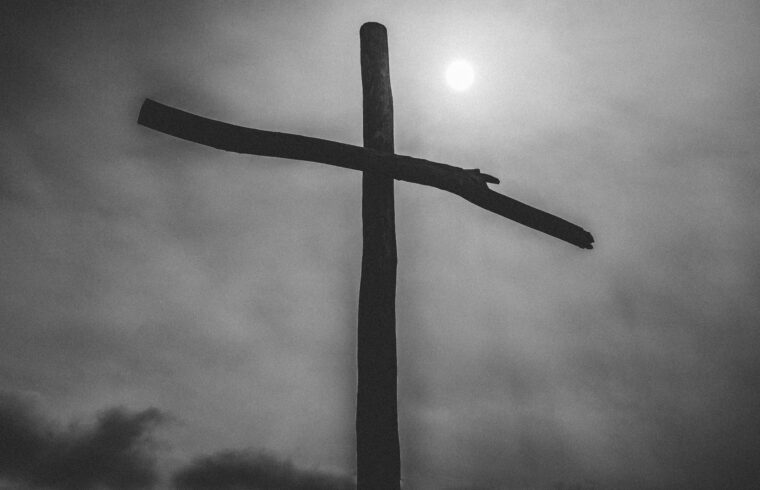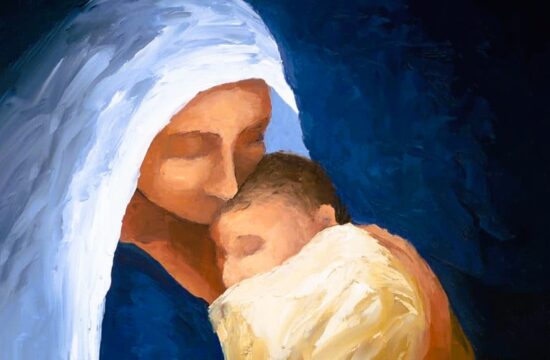How was your Lent? It seems like a random question on this Fourth Sunday of Easter. It’s hard to believe that we gathered together on Ash Wednesday over two months ago, and now we’re halfway through the Easter Season. But think back to that Wednesday in February when we first gathered together to begin that penitential season, when we were called to renew ourselves in the timeless practices of Fasting, Prayer, and Almsgiving. How did those things go?
Thanks so much for stopping by to read my homily for the FOURTH SUNDAY OF EASTER – April 30, 2023, for sharing it on your social media posts and your feedback and comments… I’m also grateful for all those who’ve asked for the audio version and share them as well at SOUNDCLOUD click HERE or from ITUNES as a podcast HERE. May the Lord be glorified in your reading and sharing- Father Jim
Working with college students gives a unique vantage point of witnessing people’s experiences of Lent. Because it’s a time when they’re on their own, no Mom or Dad is encouraging (forcing) compliance. For some, they’ve maybe only had a peripheral understanding of things. Now they’re around peers who take their faith seriously and make it their own and they hear about the importance for the first time of entering into Lent, a spiritual desert, to prepare for the celebration of the Paschal Triduum. So they’ll encounter different things that people are doing or trying to do to make this time meaningful, and their experiences can go all over the place. From the kid talking at Mardi Gras about how they’re going to go to Daily Mass every day of Lent and then making a public confession on Ash Wednesday about how they had a cheeseburger for lunch (where another student pointed out that not only did they break the obligation not to eat meat, but it sounded like they weren’t fasting either, so that conversation got animated quickly). One year this guy who could be considered a carnivore – I don’t think there was a meal or snack that didn’t include meat of some kind – decided he would abstain from all meat, all Lent – which he did – – – to the point that he became anemic.
My favorite was the student who had recently turned 21 and announced he was giving up alcohol for Lent. A few weeks in, I told him how admirable it was, especially with St. Patrick’s Day coming up. “Oh, St. Patrick’s Day doesn’t count,” he said with great certainty. I said I didn’t realize he was a theologian all these years. “Father, it’s St. Patrick’s day, come on…” When I assured him it wasn’t a sin, that this was something between him and God, I added, “I’m sure that the great Saint, who poured out his life to the people of Ireland to bring them the faith of Jesus Christ would appreciate that you’re honoring him and his sacrifices by exempting yourself from the Lenten fast you chose…” Who says Catholic guilt doesn’t work anymore?
I find these stories and anecdotes amusing because as much as we try to explain that Lent is not meant to be an endurance contest, a suffering Olympics – that these ancient practices of fasting, prayer, and almsgiving are not meant to be a way to punish ourselves or make us feel more guilty, especially when we do fail at these things we’re taking on. Sometimes it can feel that way or turn into that. Sometimes the real meaning behind these things gets lost. This is why four weeks into Easter, with a little distance from it, is a good time to revisit Lent and ask ourselves how it went. Because the whole purpose of those spiritual practices is to simplify things and evaluate the condition of our hearts. Namely, how focused is our hearts on Jesus, and how distracted are they by the things of this world?
The thing that triggered all this for me was this First Reading from the Acts of the Apostles. We’ve been hearing from this second chapter of Acts for three weeks now. In this passage, it is Pentecost Sunday, fifty days after Jesus’ Resurrection from the dead, nine days after He ascended into heaven. BUT – Lest we forget, 53 days earlier, Peter was last heard saying about Jesus, “I don’t know the man,” as he denied Him during His Passion. Lest we forget, 53 days earlier, 10 of the other apostles ran and hid (and Judas had committed suicide after betraying Jesus). In a way, you could say all the apostles, except St. John, failed pretty terribly during their very first Lent, so we’re in good company if we felt ours this year was less than ideal.
But now post-Easter, post-receiving the outpouring of the Holy Spirit, with Judas having been replaced now, the 12 of them stand out in public before crowds in Jerusalem. Peter launches into one of the most passionate homilies ever preached. The crowds went from laughing and dismissing them saying “they must be drunk,” to when they hear Peter preach and then call them out – God has made both Lord and Christ, this Jesus whom you crucified. St. Luke describes the effect these words had on them – when they heard this, they were cut to the heart…what are we to do? Peter tells them – repent and be baptized – and 3,000 do so.
They were cut to the heart – What are we to do? Repent and be Baptized.
We’re hearing this reading not because we’re celebrating Easter by recounting some of our most significant moments in Early Church History and a sense of triumphalism on our part. This reading is proclaimed so that we reflect on that reality – the “cutting of the heart” – where we cut away the things of this world that keep distracting us from God; where we cut away the things that undermine our faith; where we cut away the things that diminish the eternal identity that we received in our baptisms as God’s very sons and daughters.
We’re reflecting on that because the apostles remind us how hard that is by their very lives. That they failed not just in their “first Lent” but throughout their lives and missions as apostles. They had to learn the hard way that Jesus was perfect; they were not. Just because they had abandoned their nets and left behind the lives they knew before when they first followed Jesus didn’t remove their humanity and fix their imperfections. They were still going to fall. And they would find their lives would be one of “ongoing conversion.”
Instead of beating themselves up over and over for still needing that, what did they do? They remembered all that Jesus had said and taught them. They recognized that He wasn’t some taskmaster evaluating their performance… He wasn’t some divinity that looked at human beings for their own amusement like the pagans thought… He wasn’t the warrior king looking to conquer the enemies of Israel like some of the Jewish people awaiting the Messiah were anticipating.
He wasn’t any of those things. He’s was (and is) the Good Shepherd. Every year on the 4th Sunday of Easter, we hear from the 10th Chapter of the Gospel of St. John. And reading and listenng to it, can get confusing. Because you hear Jesus talking about the sheep, the shepherd, to what we just heard, “I am the gate for the sheep.” But we shouldn’t overcomplicate things and let the word salad that St. John sometimes offers distract us from the beauty of what Jesus is revealing. That Jesus is all of these things.
– Jesus is the Lamb of God, which is a baby sheep… so we’re reminded that God Himself stoops down and has become one of us, one with us.
– Jesus is the Shepherd because He leads us. Yes even in this Church that He has entrusted stewardship to some of his broken, smelly, sheep – it’s Jesus who is the Shepherd and the only one who ultimately matters.
– And Jesus is the Gate because we find stability in an ever turbulent world, protection from the evil one, healing and forgiveness of our sins through Him, with Him, in Him.
St. Peter continues to preach telling us in the Second Reading: to “…follow in [Jesus’] footsteps, as he reminds us: He committed no sin, and no deceit was found in his mouth. When He was insulted, he returned no insult; when he suffered, he did not threaten…” But Peter reflecting on his own ongoing struggles and his own ongoing failures in following that example, knows his hope to keep persevering as he proposes: By His wounds, you have been healed. For you had gone astray like sheep, but now you have returned to the shepherd and guardian of your souls.”
Peter learned that essential point. Even after having experienced being “cut to the heart” in the life of faith, in his following of Jesus, he would still struggle and fail. But the Good Shepherd, the guardian of our souls, was constantly looking for him, to return to Him. Which each and everyone of us needs to remember this, Lent, Easter, every season of our lives. Lent was never meant to be about what we gave up or took on. As Fulton Sheen once said: We always make the fatal mistake of thinking that it is what we do that matters when what really matters is what we let God do with us.
So reflecting back on your Lent, thinking about this Easter season, sitting here this moment – what will you let God do with you? Do we feel cut to the heart where we feel that tension between where we are and where God is calling us to be?
Let God find you…
Listen to Him calling you to turn away from the voices and things of this world…
See Him looking for you.
Recognize that longing in your hearts for Him, our Good Shepherd, to guard, guide and direct us.












Hi Father Jim, I did find this Gospel hard to understand today. Your homily really shines the light on what we really should remember, what is
most important after Lent and Easter. I do think that fasting is a way to sacrifice something and I did laugh at your analogies about fasting
by telling us about your students. God just wants to be with us, help us and shepherd us. We are all sinners so we forget sometimes that we
need to be more aware of his presence. In Psalm 23, The Lord is our Shepherd..there is a profound but gentle reminder that he does guide
us, leads us and will remain with us all the days of our lives.. In Church today, I was reminded in the refrain, as we sang about that Psalm.
I enjoy reading your homily every week…it is always inspiring and informative because you break down the Gospel for us understand ..thank you!
Thanks so much Carol Ann – have to admit, I struggled with these readings this past week. I’ve grown to appreciate St. John much more in recent years (in the past I referred to him as the “Dr. Suess of Gospel writers” – mostly because of passages like the ones we heard today!) and it took a lot of prayer, reading and reflecting for me to wrap my mind and heart around it. And the words from Acts definitely were front and center, so thankfully the Holy Spirit was able to help me put this together 🙂 So grateful for your kindness and support!